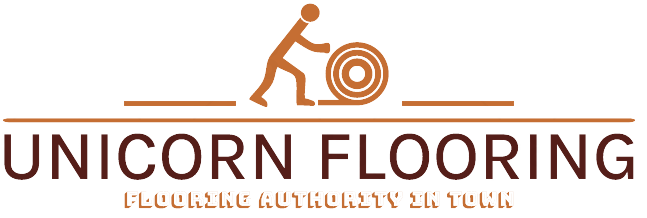Factory Flooring in Pakistan
Factory flooring plays a critical role in ensuring smooth operations, safety, and efficiency in industrial environments. Whether it’s a textile factory in Faisalabad, an automotive plant in Karachi, or a pharmaceutical unit in Lahore, the right flooring system enhances productivity, reduces downtime, and extends the life of equipment and infrastructure.
Why Factory Flooring Matters?
Factories are high-stress environments. Floors must withstand constant forklift movement, machine vibrations, chemical spills, and heavy foot traffic. Choosing the wrong flooring can lead to:
→ Cracks and spalling, creating safety hazards.
→ Increased maintenance and repair costs.
→ Dust accumulation, impacting production quality.
→ Chemical and moisture damage over time.
→ Poor aesthetics and reduced worker morale.
A properly selected and installed floor, on the other hand, ensures:
✔ High durability and load-bearing capacity.
✔ Better hygiene and safety.
✔ Easy maintenance and cleaning.
✔ Longer service life and lower lifecycle costs.
✔ Compliance with health, safety, and environmental standards.
Common Types of Factory Flooring in Pakistan
1. Concrete Flooring
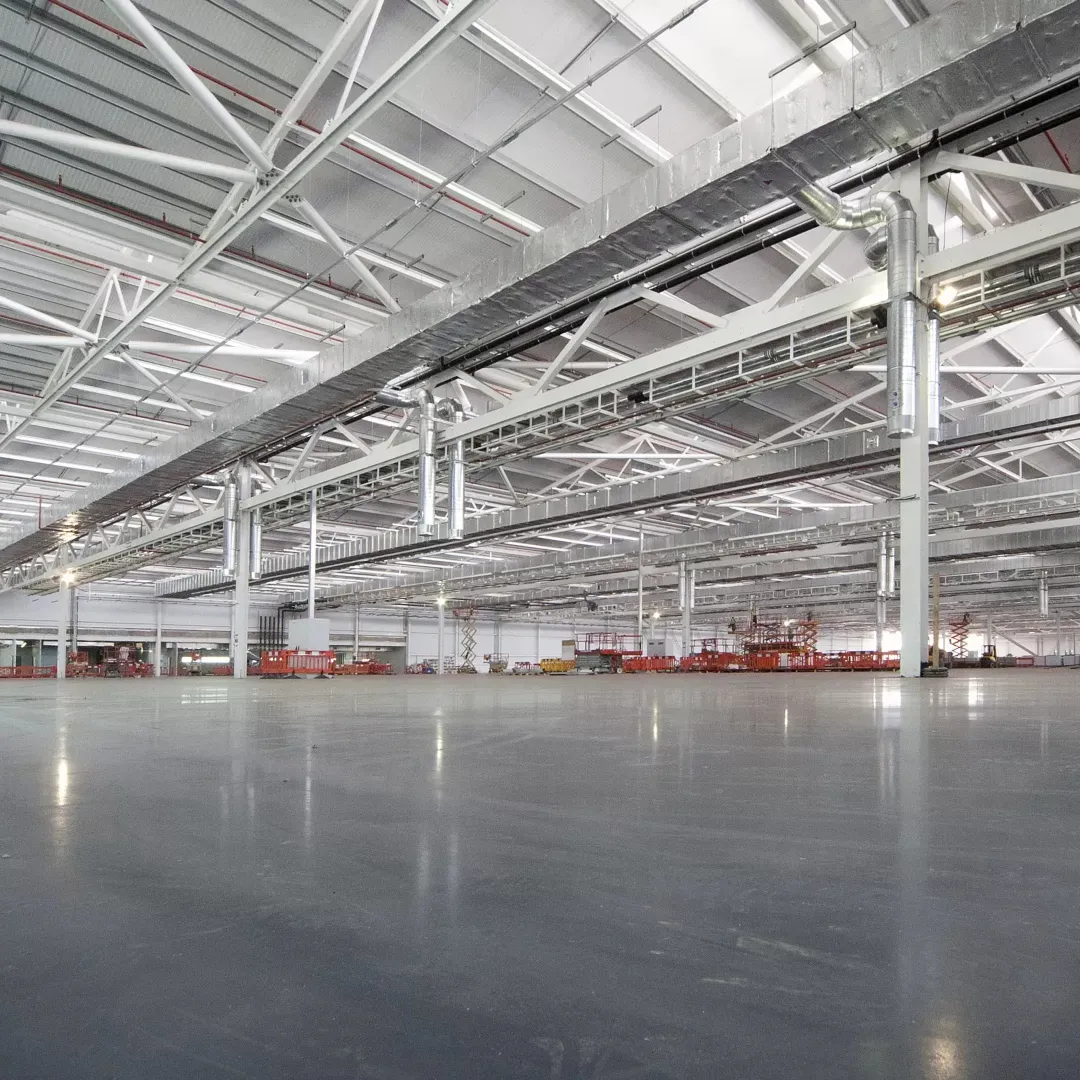
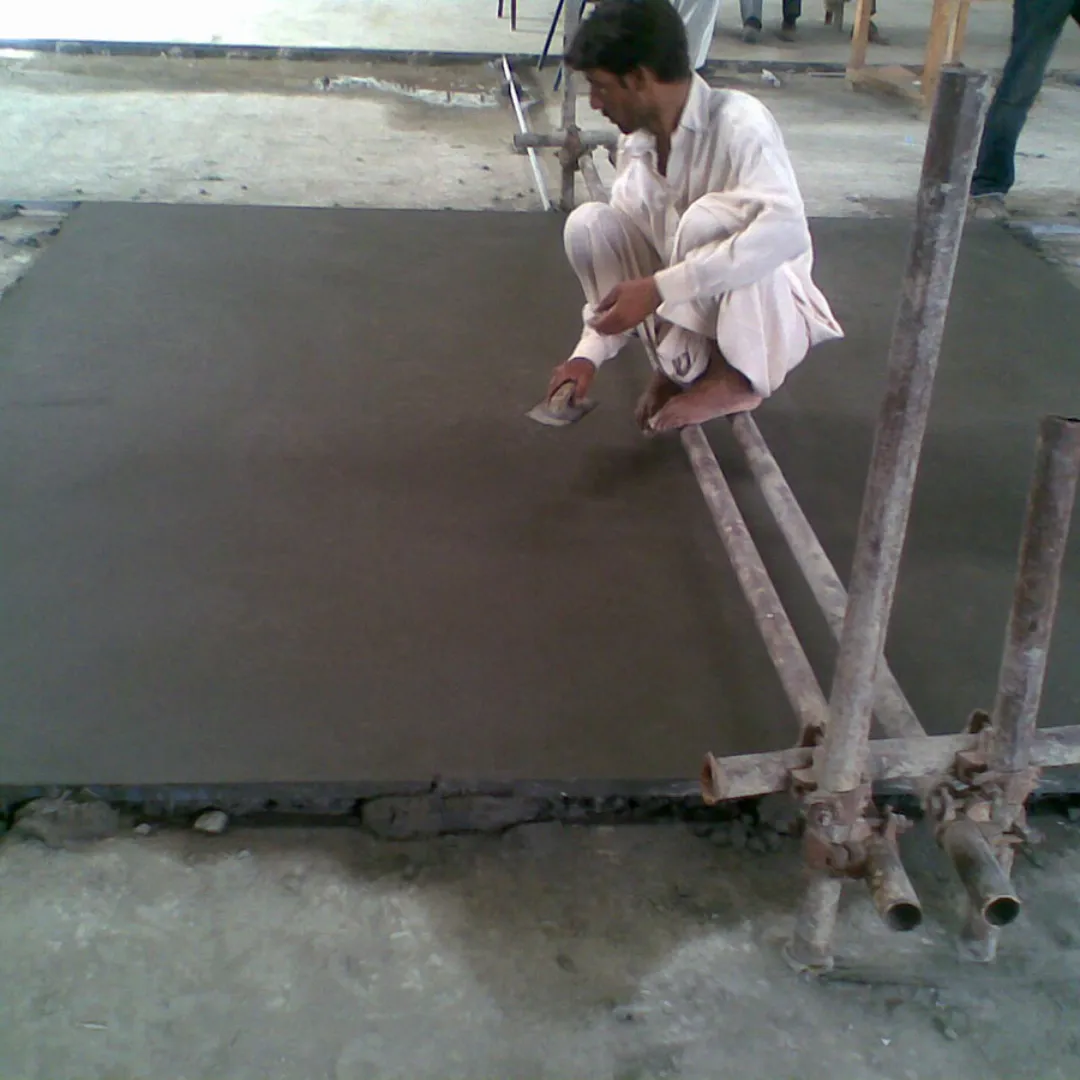
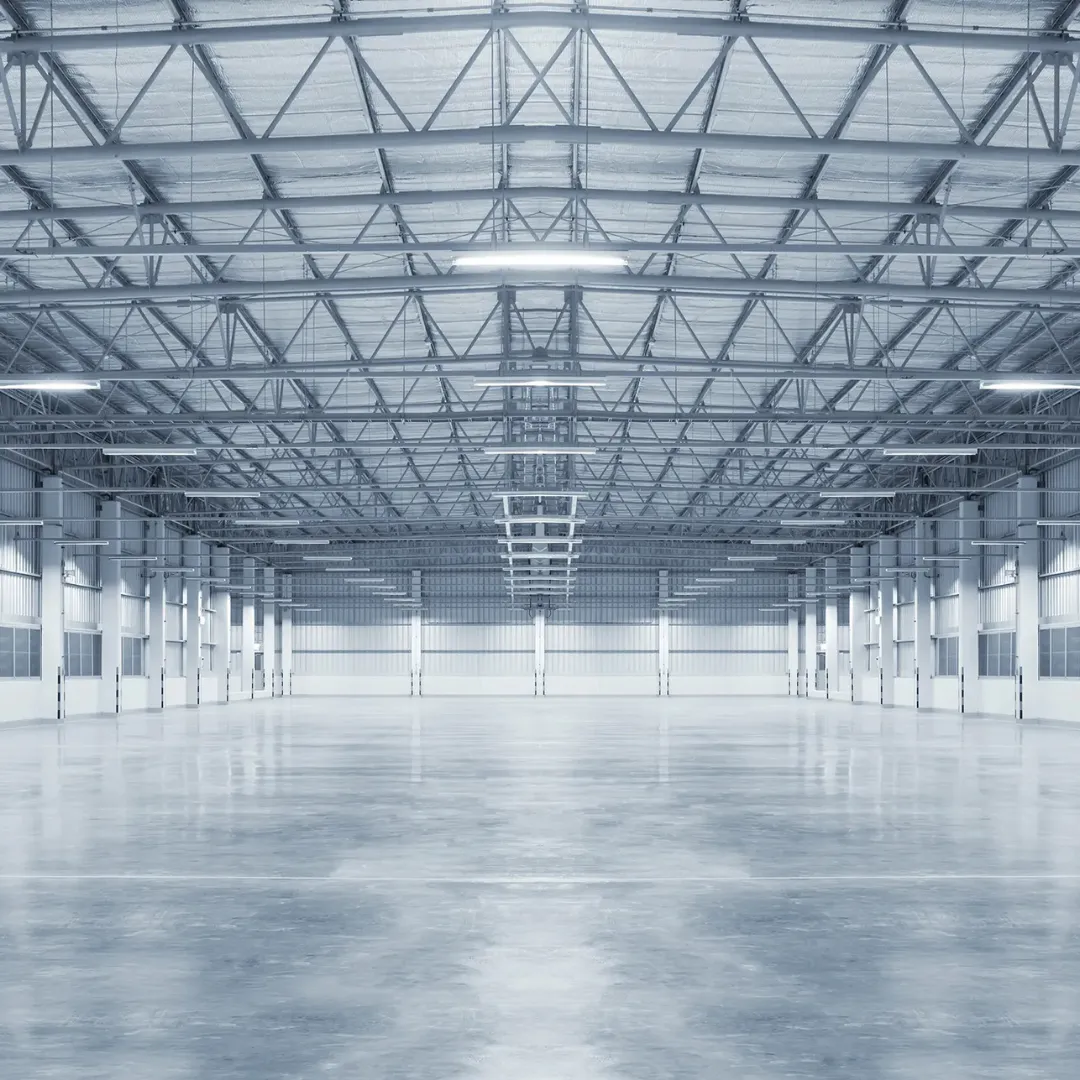
Concrete is the most widely used flooring material in Pakistani factories due to its affordability, strength, and availability.
- Advantages: High compressive strength, economical, suitable for heavy loads.
- Limitations: Susceptible to cracking and dusting if not treated properly.
- Applications: General manufacturing, warehouses, textile mills, steel works.
Tip: Using surface hardeners and sealers improves concrete’s durability and reduces dust.
2. Epoxy Flooring
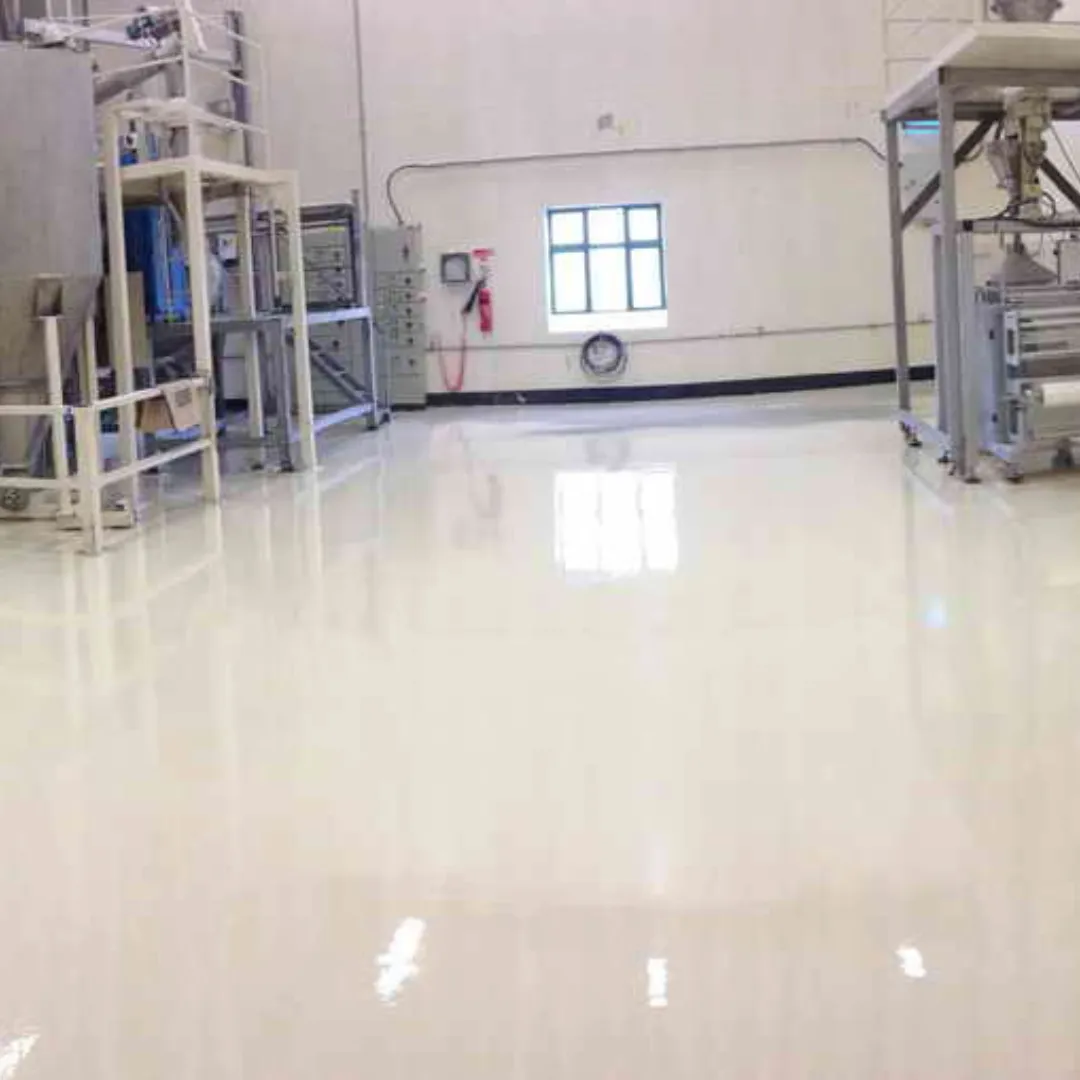

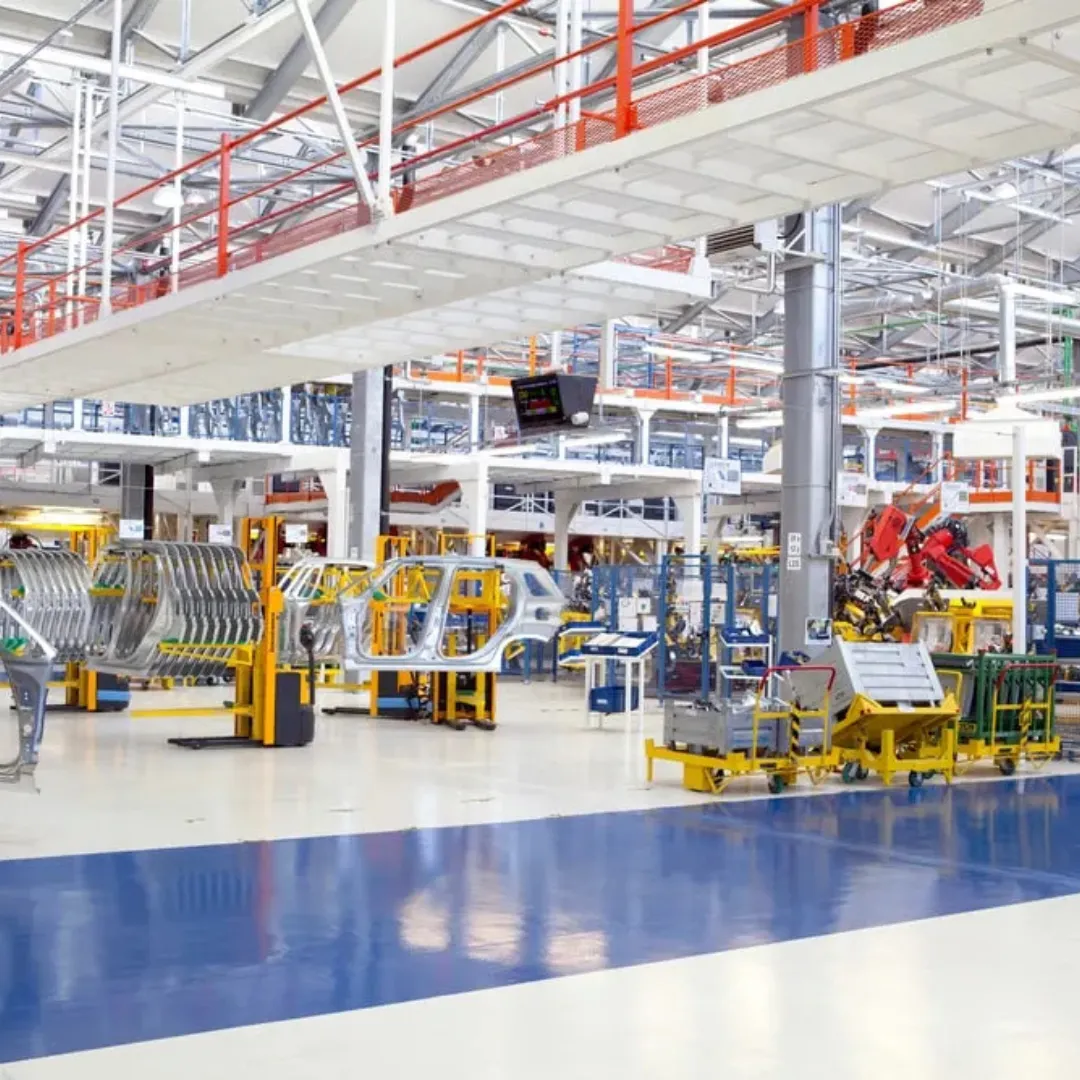
Epoxy flooring is increasingly popular in modern factories for its seamless finish, chemical resistance, and hygiene.
- Advantages: Seamless, non-porous surface, easy to clean, chemical resistant, visually appealing.
- Limitations: Requires expert installation and proper sub-base preparation.
- Applications: Pharmaceutical, electronics, automotive, packaging, cleanrooms.
Pro Tip: Anti-slip additives can be added to epoxy systems for enhanced safety.
3. PU (Polyurethane) Flooring

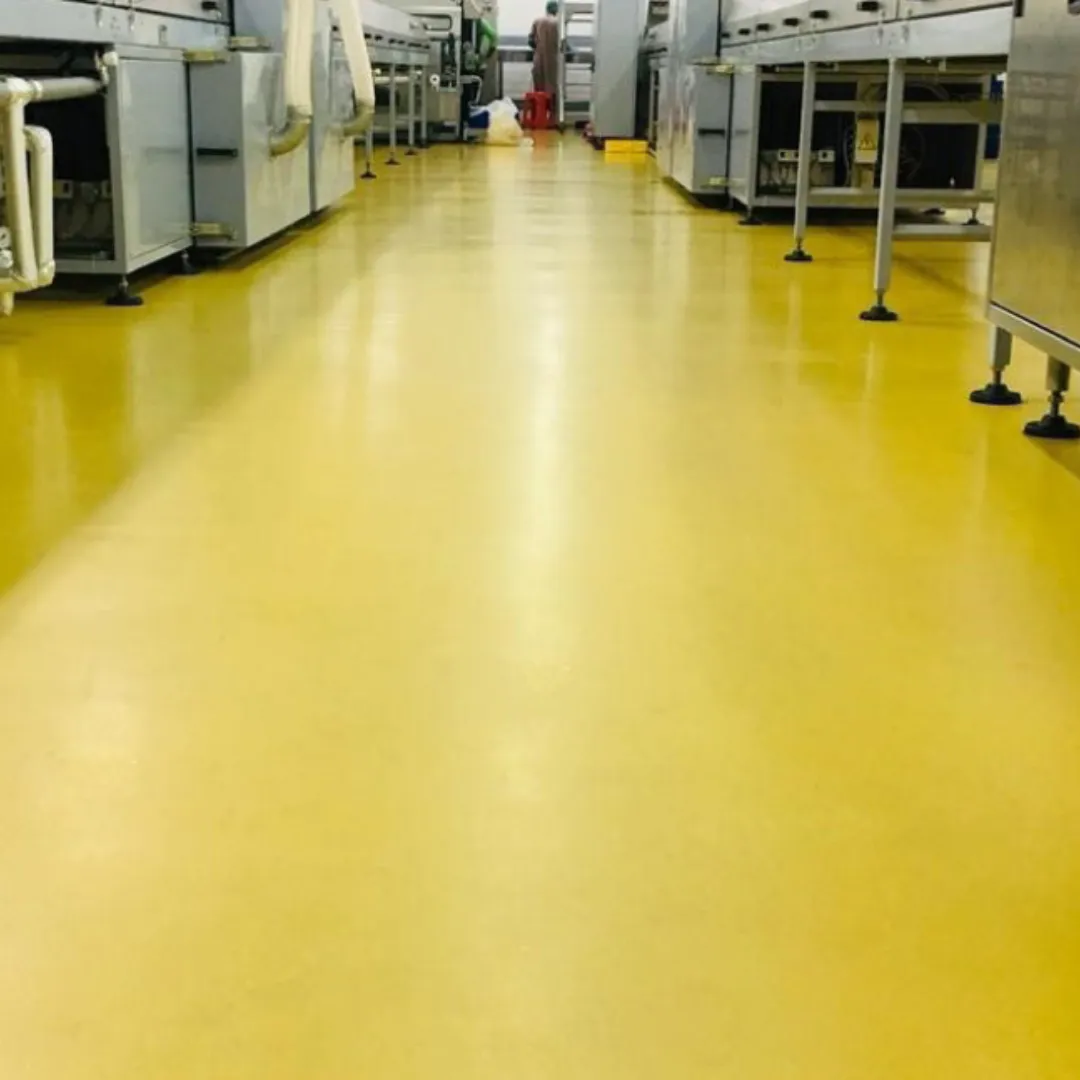
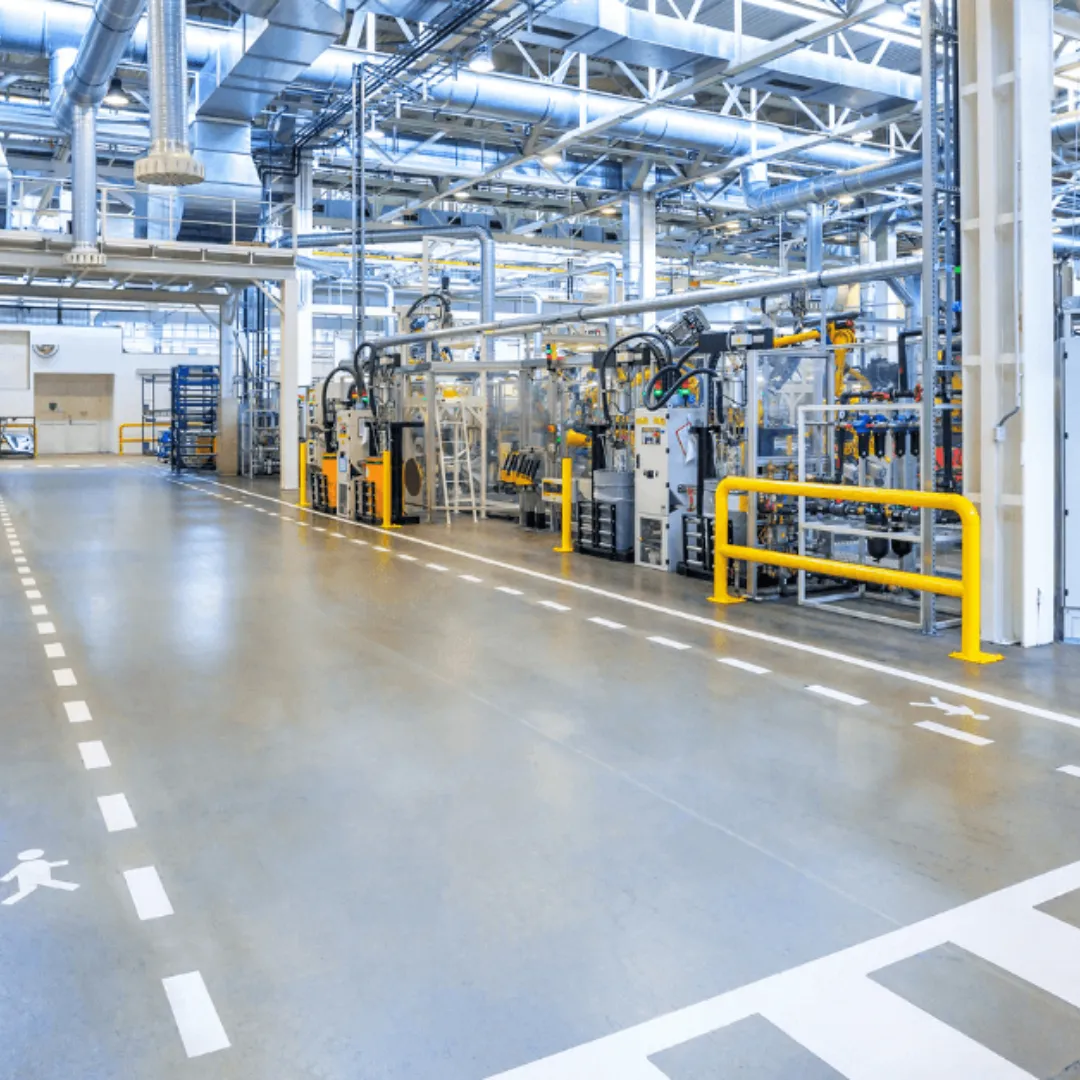
PU flooring is ideal for environments where flexibility, thermal shock resistance, and hygiene are crucial.
- Advantages: Excellent impact and abrasion resistance, handles temperature fluctuations, hygienic.
- Limitations: More expensive than epoxy.
- Applications: Food processing, beverage factories, cold rooms, pharmaceutical units.
4. Vinyl and PVC Flooring
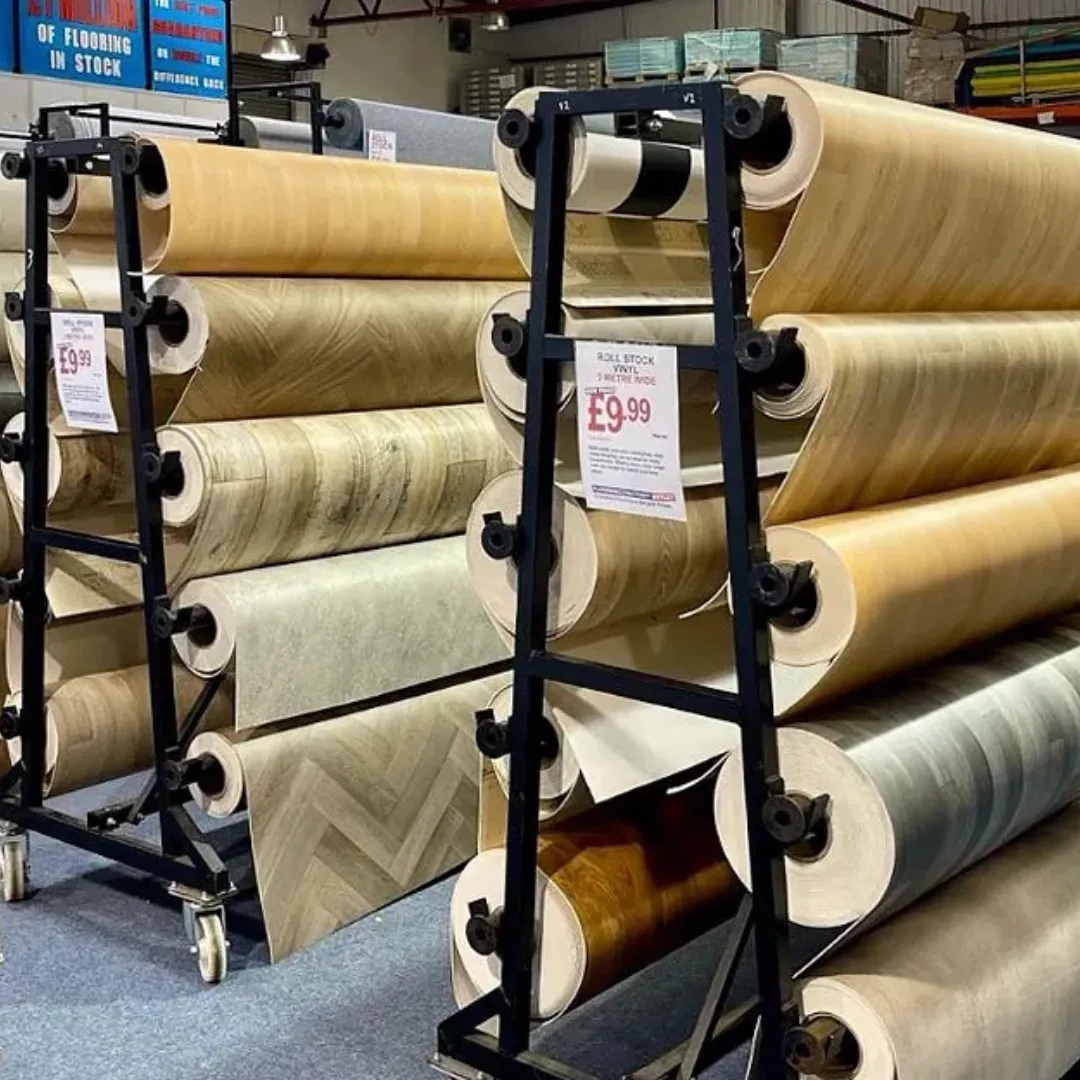
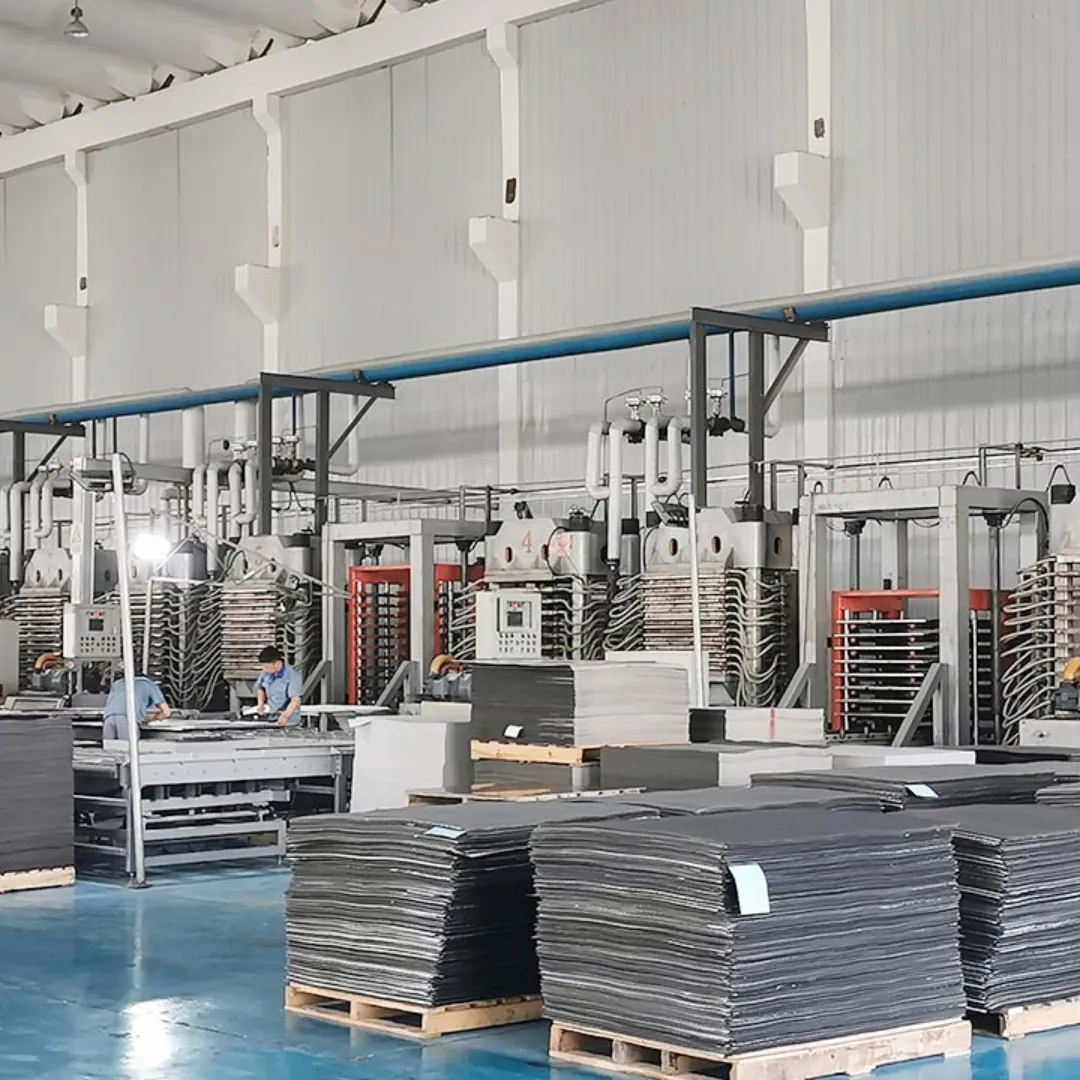
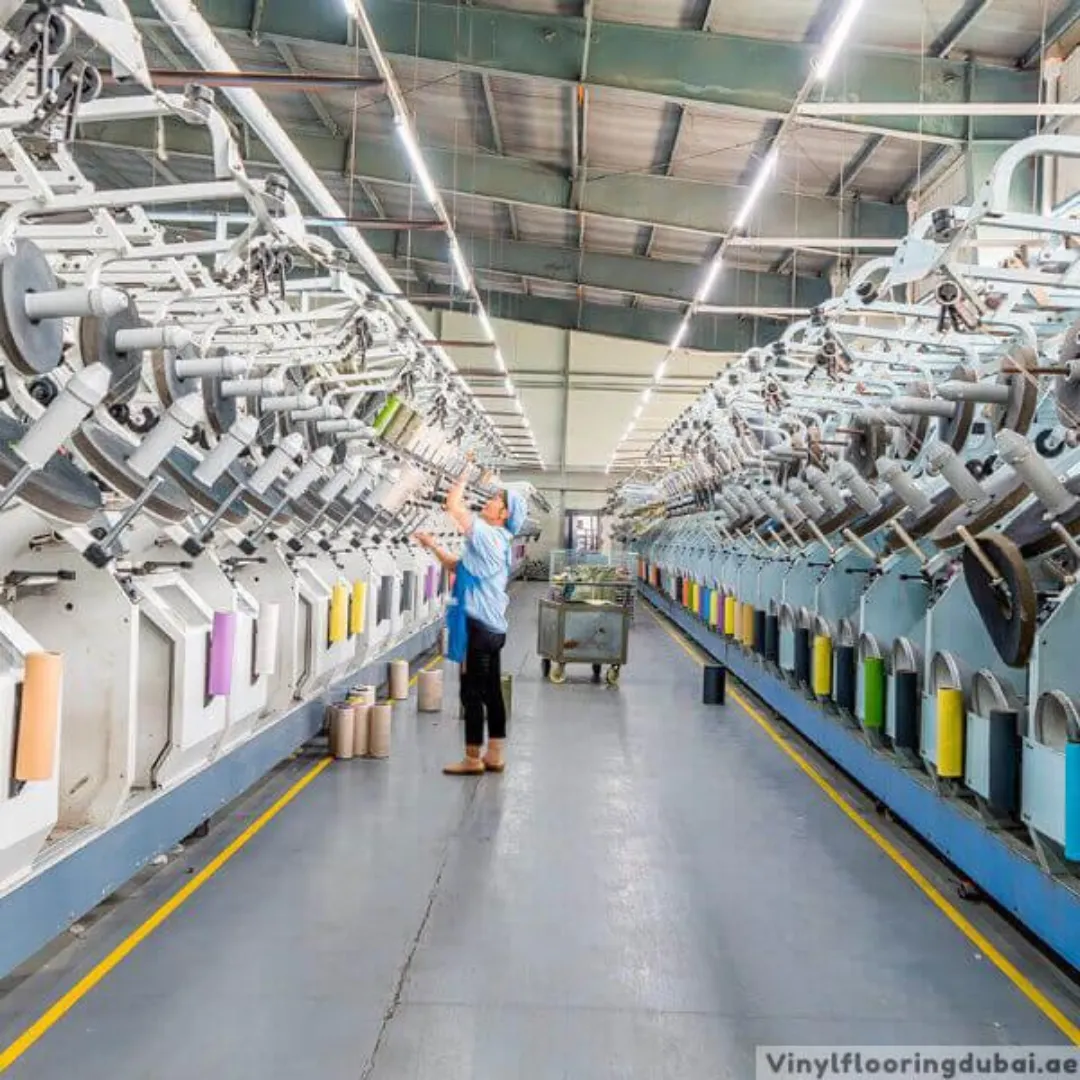
Vinyl or PVC sheets are commonly used in light-duty factory zones or clean areas.
- Advantages: Quick installation, hygienic, water resistant.
- Limitations: Not suitable for heavy machinery areas.
- Applications: Assembly lines, packing zones, office areas inside factories.
5. Rubber Flooring
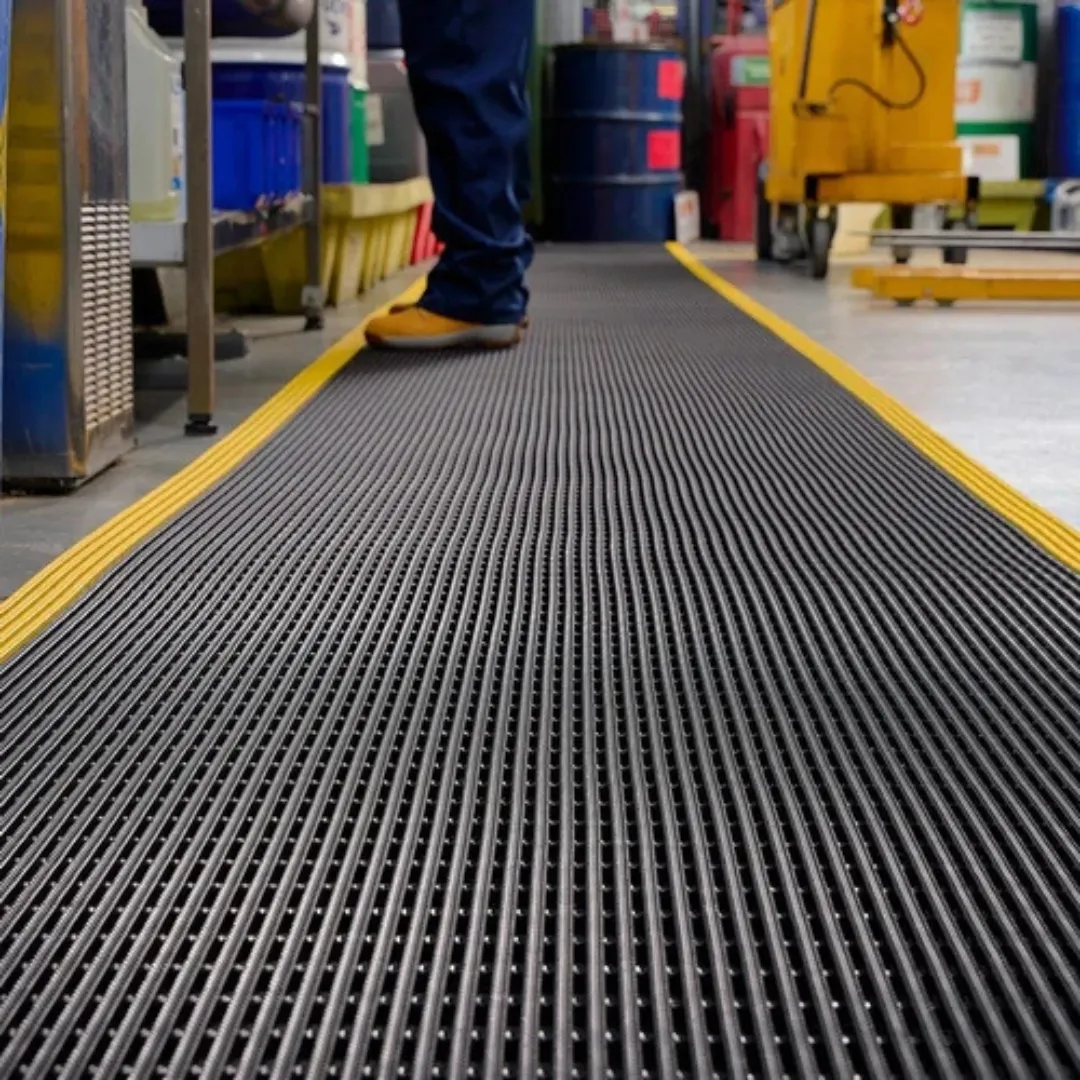
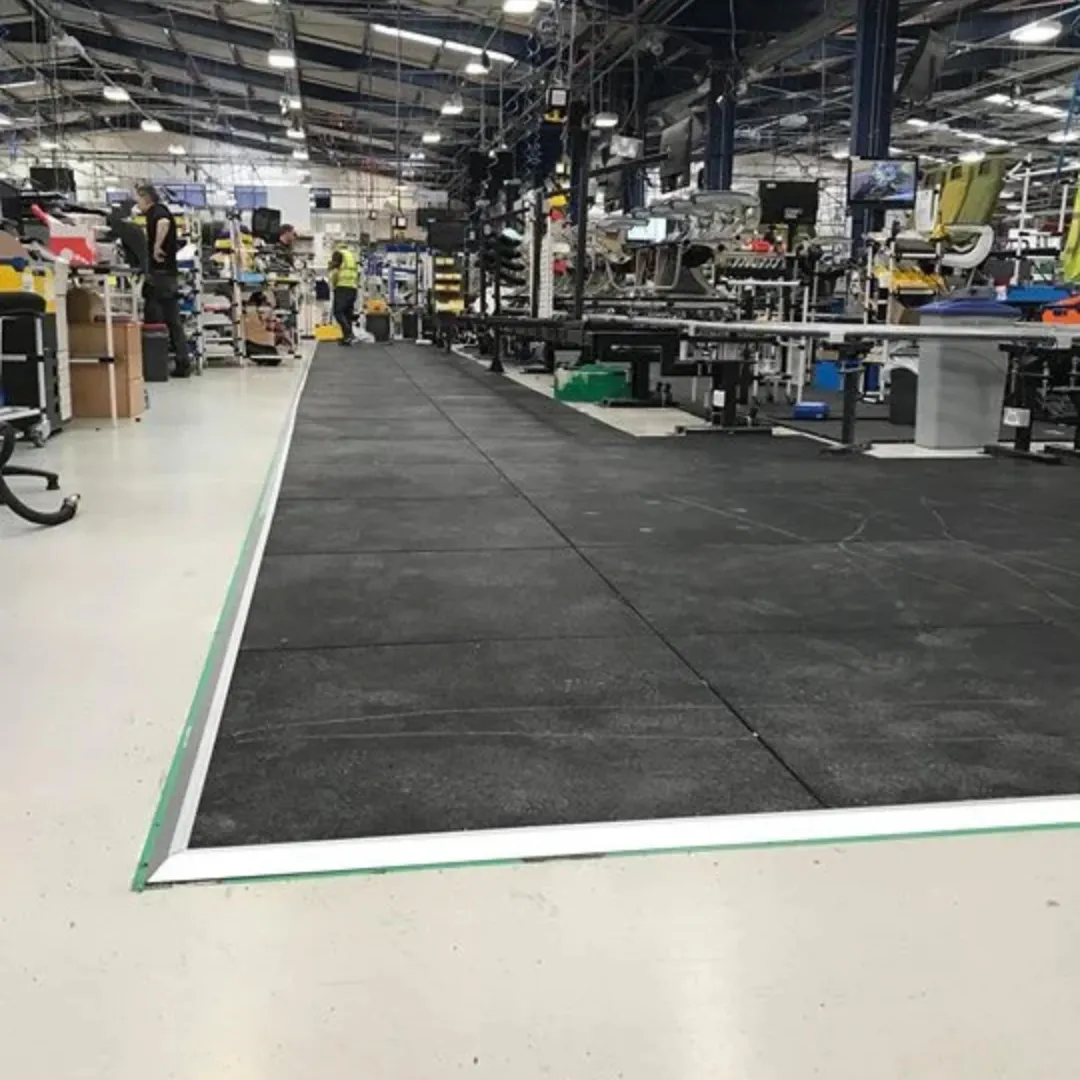
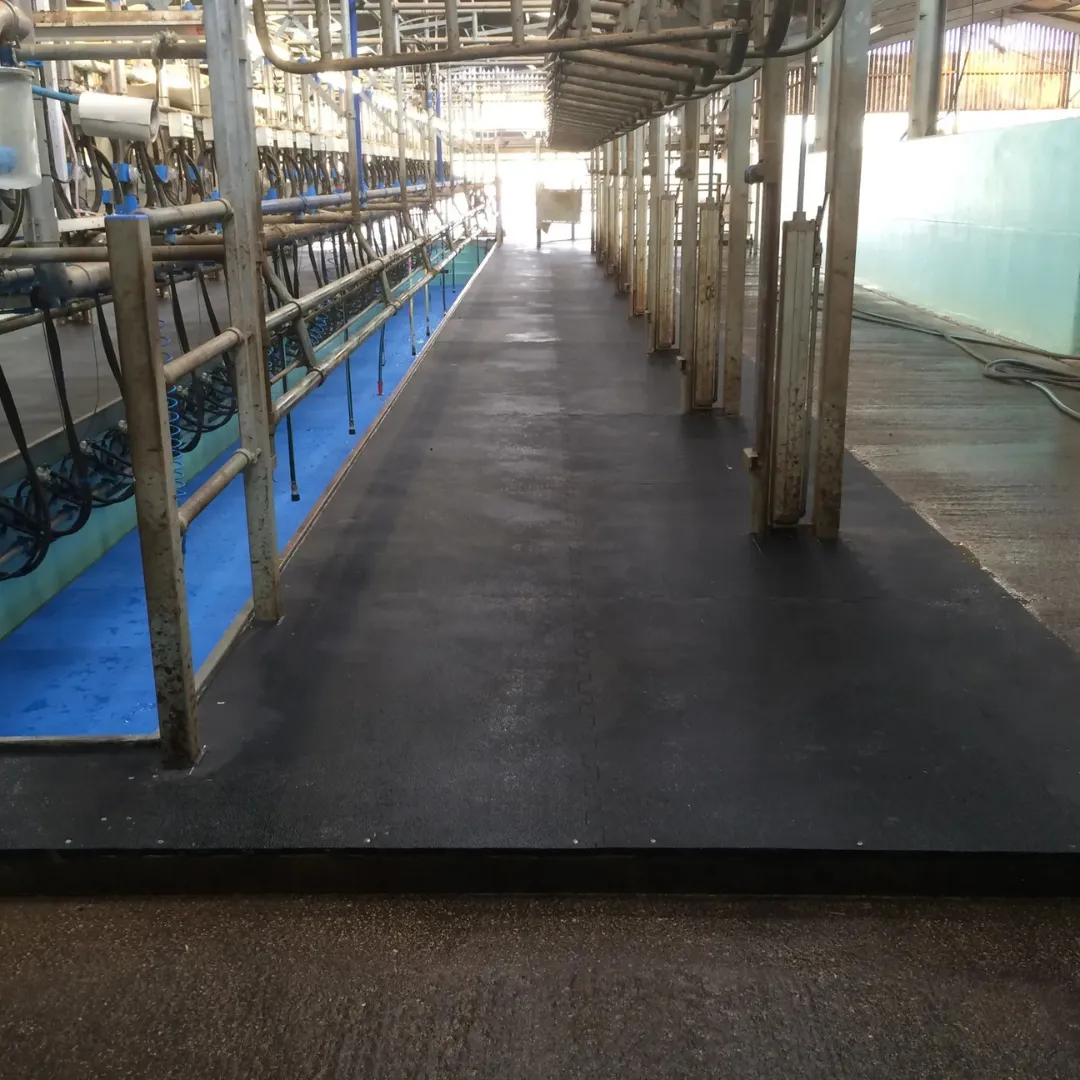
Rubber flooring is best for areas where shock absorption, comfort, or sound reduction is a priority.
- Advantages: Non-slip, cushioned, noise-reducing, anti-fatigue.
- Limitations: Less load-bearing capacity.
- Applications: Worker standing zones, assembly areas.
6. Interlocking Tiles
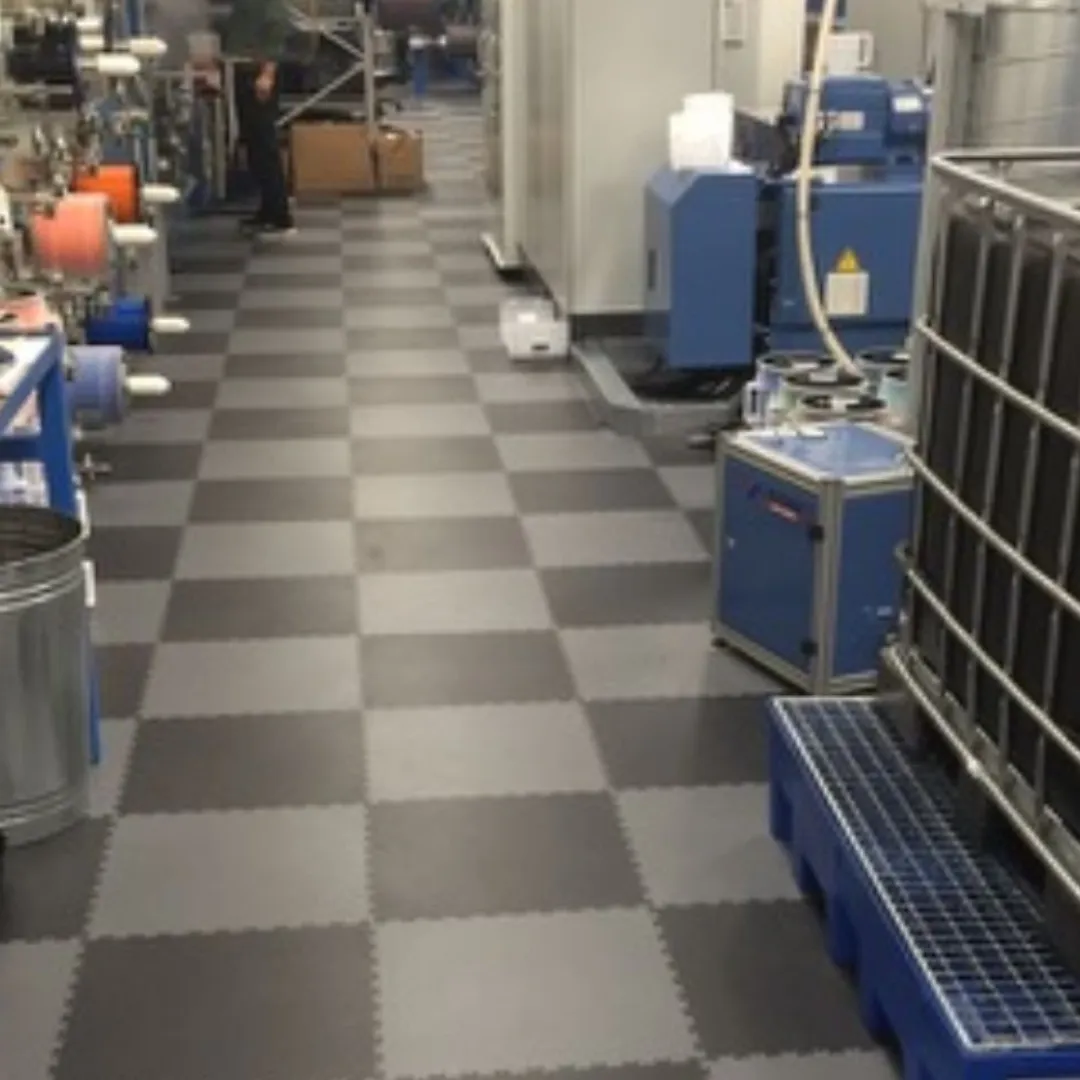
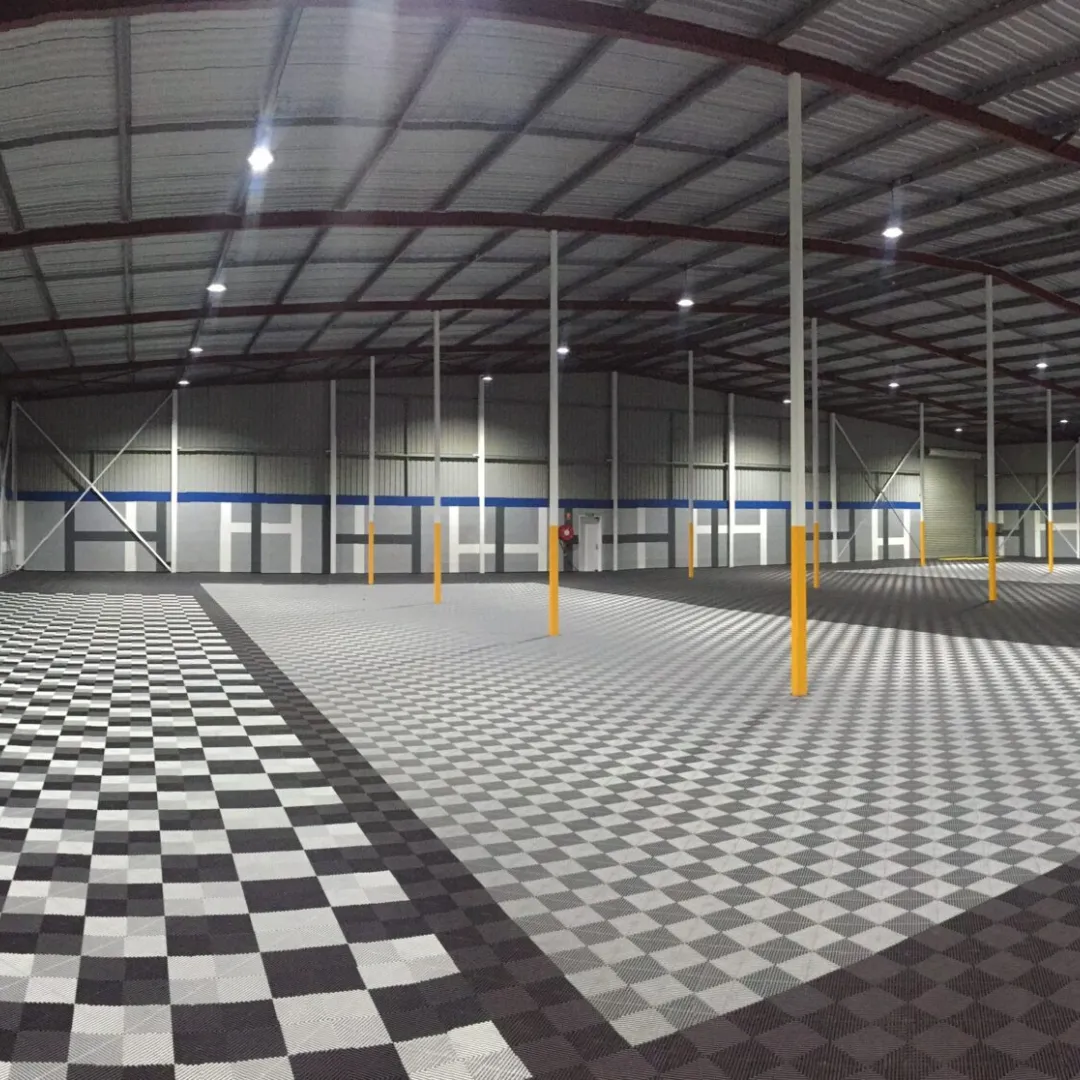
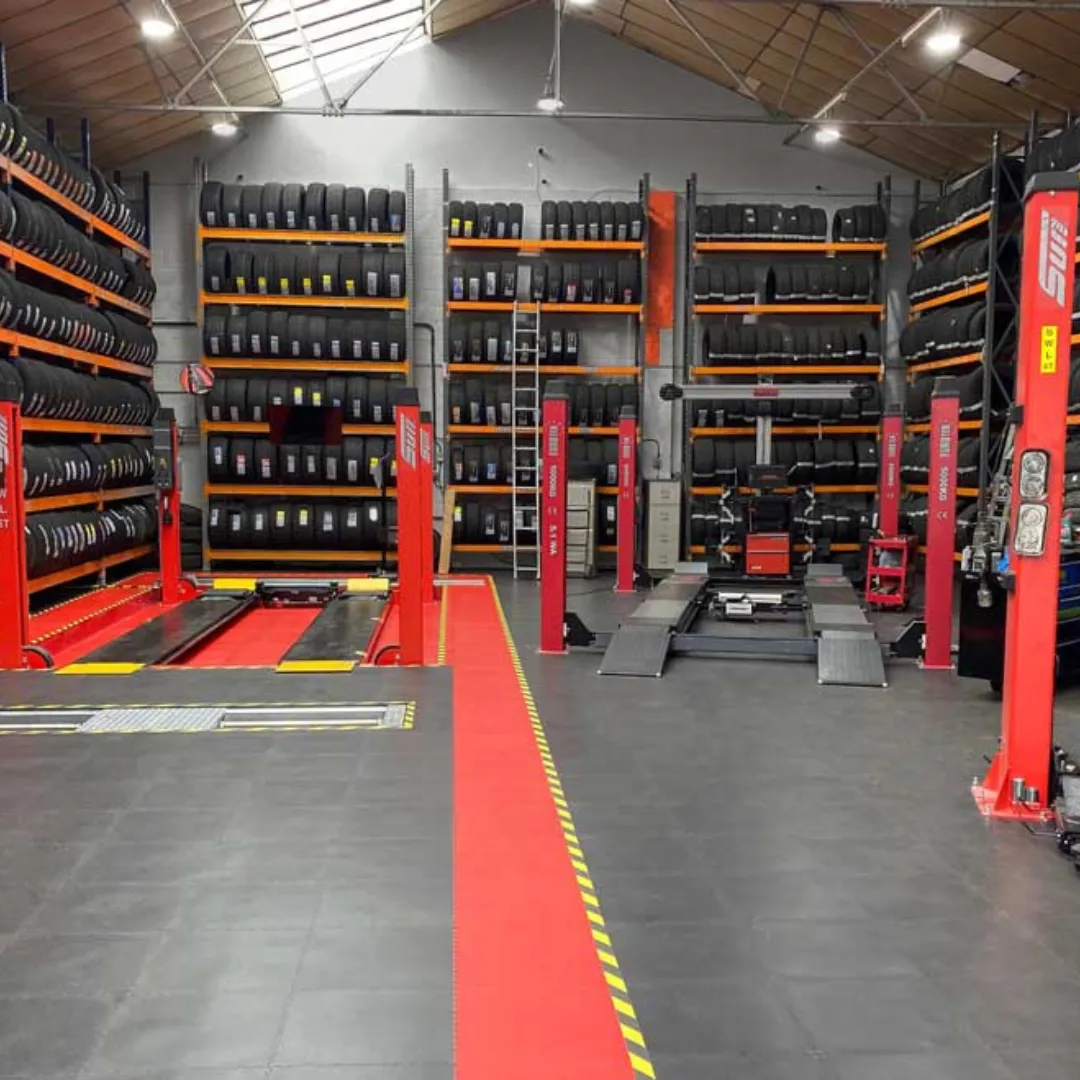
Interlocking tiles (PVC or rubber) offer flexibility, quick installation, and easy maintenance.
- Advantages: Replaceable tiles, minimal downtime, no adhesives needed.
- Limitations: Not ideal for very heavy loads without proper sub-base.
- Applications: Temporary production areas, storage rooms, small factories.
Key Factors When Choosing Factory Flooring
Choosing the right flooring depends on multiple factors specific to the industry and operational environment.
→ Load Capacity: Evaluate forklift traffic, machine weight, and vibration.
→ Chemical Exposure: Consider resistance to oils, acids, and cleaning chemicals.
→ Temperature & Humidity: Cold rooms and unventilated spaces need thermally stable flooring.
→ Safety Requirements: Anti-slip and fire-resistant surfaces enhance worker protection.
→ Maintenance Needs: Seamless floors are easier to clean and sanitize.
→ Budget & Lifecycle Costs: Balance between upfront cost and long-term performance.
→ Regulatory Compliance: Follow national safety, environmental, and hygiene regulations.
Installation Best Practices
→ Ensure a stable, moisture-free sub-base.
→ Use a vapor barrier if necessary.
→ Grind and prime surfaces before applying epoxy or PU.
→ Apply multiple coats (primer, base coat, top coat) for durability.
→ Create slope for drainage in wet zones.
→ Mark zones and safety pathways clearly.
→ Allow proper curing before operations begin.
Maintenance and Repair Strategies
→ Regular cleaning to prevent dust accumulation.
→ Periodic re-coating of epoxy/PU floors.
→ Immediate repair of cracks and spalling.
→ Replacement of damaged interlocking tiles.
→ Annual inspections for preventive maintenance.
→ Use appropriate cleaning agents to avoid surface damage
Common Problems and Their Solutions
| Problem | Cause | Solution |
|---|---|---|
| Cracks and spalling | Heavy load, poor sub-base | Reinforce sub-base, use epoxy mortar for repair |
| Dusting and surface wear | Untreated concrete | Apply hardener or epoxy coating |
| Moisture seepage | Lack of vapor barrier, drainage issues | Install moisture barrier, improve site drainage |
| Chemical stains and damage | Spillages, harsh cleaners | Use chemical-resistant coatings, train staff |
| Slippery surfaces | No anti-slip finish | Add non-slip additives or mats |
| Rapid wear under machinery | Point loads | Use PU or reinforced epoxy flooring |
Health, Safety, and Regulatory Considerations
1. Slip Resistance
Factory floors must minimize slip and trip hazards. Use flooring with R10–R13 slip resistance ratings, especially in wet zones.
2. Safety Markings and Zoning
Mark pedestrian lanes, forklift pathways, emergency exits, and hazardous zones using durable paint or epoxy markings.
3. Fire Safety
Use fire-retardant coatings in compliance with Civil Defence and NFPA guidelines.
4. ESD (Electrostatic Discharge) Control
For electronic and chemical plants, install ESD-safe flooring to prevent equipment damage or fire.
5. Chemical Spill Containment
Choose chemical-resistant flooring and install containment barriers in areas handling corrosive or flammable liquids.
6. Ergonomics and Worker Comfort
Use anti-fatigue mats or cushioned flooring in standing areas to reduce worker strain.
7. Hygiene Standards
Food and pharma industries must comply with ISO 22000, GMP, and Pakistan Food Authority standards.
Cost Drivers for Factory Flooring in Pakistan
| Cost Factor | Impact on Cost |
|---|---|
| Flooring type | Major factor (PKR 300 – 2500+ per sq. ft.) |
| Surface preparation | Grinding, priming, leveling adds to cost |
| Thickness and layer system | More layers = more cost but longer life |
| Area size and complexity | Larger areas reduce per sq. ft. cost |
| Additional features (ESD, anti-slip) | Increases total cost but enhances safety |
Case Studies
Case Study 1: Lahore Textile Factory
A 60,000 sq. ft. textile factory upgraded from plain concrete to epoxy flooring to reduce dust and improve hygiene. Result: 30% less maintenance downtime and better compliance with export quality standards.
Case Study 2: Karachi Automotive Plant
A major auto-parts manufacturer switched to PU flooring for its durability and impact resistance. After 2 years, maintenance costs dropped by 40%, and floor integrity remained intact despite heavy forklift traffic.
Case Study 3: Faisalabad Food Processing Unit
A food plant required hygienic and temperature-resistant flooring. PU cement flooring was installed, ensuring compliance with food safety standards and improving energy efficiency.
Conclusion
Factory flooring is not just a surface — it’s the foundation of smooth, safe, and efficient operations. In Pakistan’s growing industrial landscape, the right flooring can significantly reduce costs, improve productivity, and enhance compliance with safety and hygiene standards.
From concrete to epoxy and PU systems, the choice depends on operational needs, environment, and budget. By working with experienced flooring contractors and adhering to best practices, factory owners can ensure their flooring investment pays off for years to come.
✨ Pro Tip: Don’t just think about the initial cost — focus on lifecycle value and performance.
